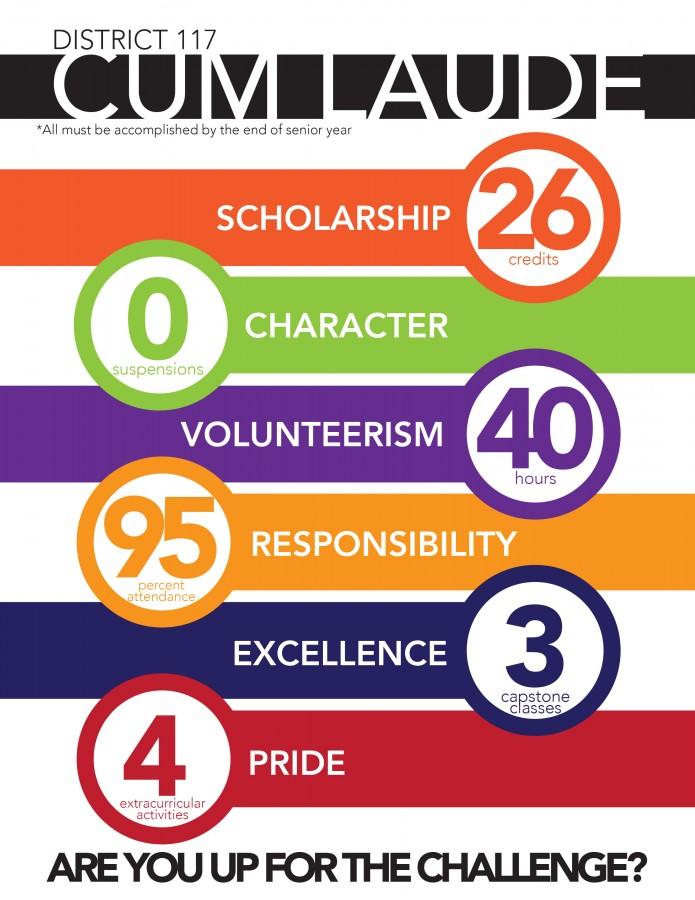The Cum Laude Controversy
The introduction of Cum Laude comes with both positive and negative responses.
September 10, 2014
Graduating high school is one of the most important times in a student’s life. It’s the day when students can say they have accomplished something great. We successfully completed four years of studying, tests, homework and stress. While some passed by with the minimum to graduate, there are also those who put in the extra effort to achieve above average grades along with extracurricular activities. These are the people who will graduate with honors. For many, graduating with honors is important, not only for college, but for their sense of pride. However, Antioch Community High School’s 100th year has brought changes to the previous GPA based honors system. This new system is Cum Laude. Many have already heard of it, others may be unfamiliar with it. But even if you don’t yet know what it is, it has already begun to impact you.
Cum Laude is a Latin term that means “with honor,” and it makes students less dependent on their grades and grade point average, and encourages students to volunteer, participate and behave well. When ACHS Principal Bradford Hubbard was at Woodstock High School, they had this same program with just eight criteria for achieving it.
“I did presentations to both student achievement committees about the program that Woodstock had, but we wanted to make it our own, and where we landed was on six criteria, six criteria that we think will hopefully do the same thing,” said Hubbard.
These six criteria are what students have to meet in order to achieve Cum Laude. They must earn 26 credits (scholarship), have zero suspensions (character), volunteer a total of 40 hours (volunteer), earn at least a 95% attendance rate (responsibility), complete 3 capstone classes (excellence), as well as participate in four extracurricular activities (pride). It may be difficult to achieve Cum Laude, but, in the eyes of Junior Quintin Tallian, it’s worth it.
“I believe that the Cum Laude system is very developed in the way that it sets multiple goals, rather than just focusing strictly on your GPA. It helps everyone out by bringing the other important things into your high school years such as attendance and responsibility. It’s also good for colleges because they can see that you did more than just get good grades,” said Tallian.
Tallian is one of the students who feel positively about Cum Laude, but there are many who are not so optimistic about it. Such as the seniors. Since Cum Laude has officially taken GPA based honors out of the picture, seniors that worked hard their whole high school career to get a 4.0 or higher GPA, are now unfortunate if they did not get the six criteria.
So yes, it is quite hard for a lot of the seniors to achieve Cum Laude, if they have most, or none, of the criteria. But looking at the big picture, such as the freshmen – juniors, Cum Laude is not that bad. It encourages students to be more active and outgoing, which is something colleges really look for.







